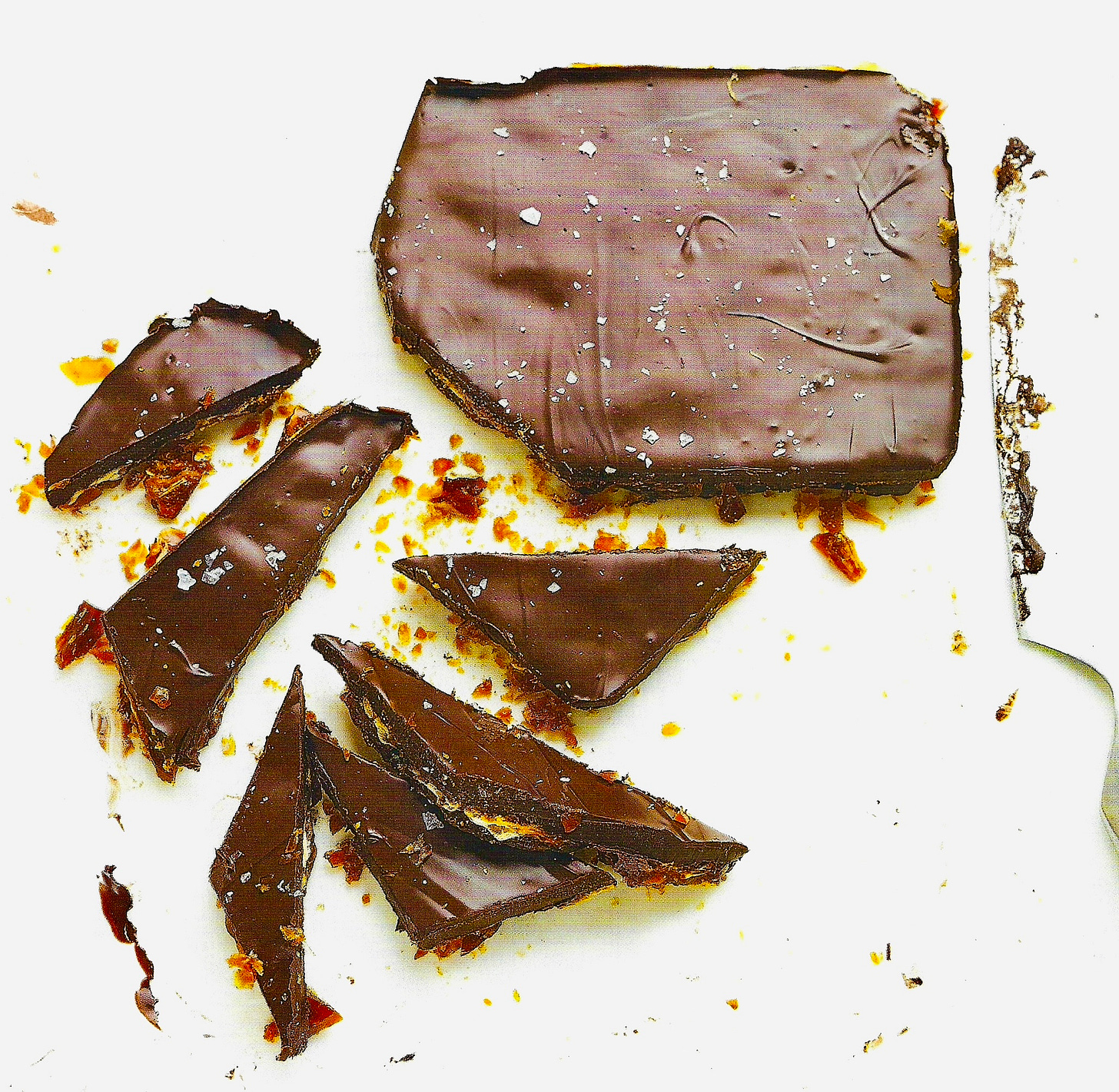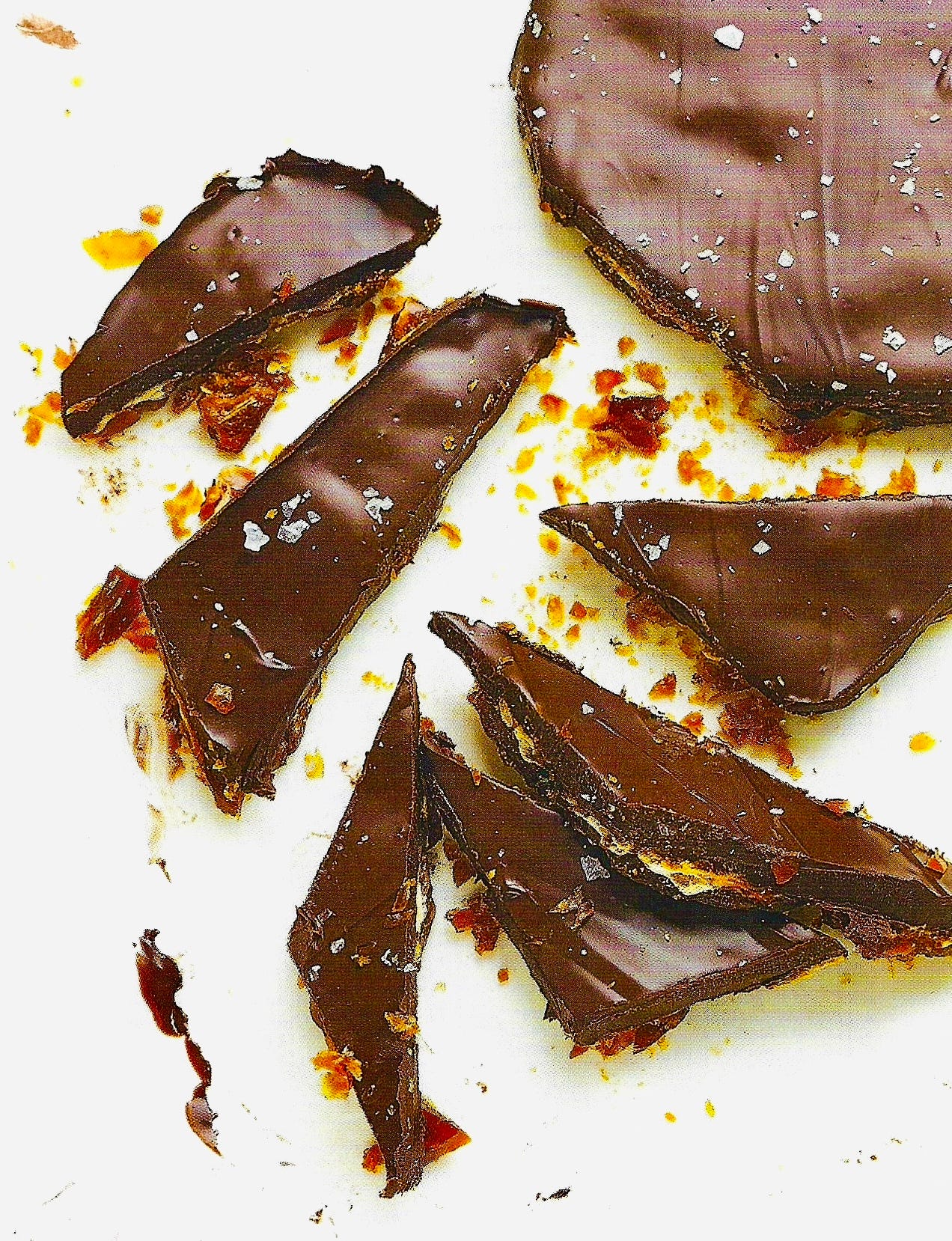Blurbs on cookbooks: how do they get there?
... are they honest and do they boost sales? My thoughts, plus a recipe for an outrageusly delicious sweet, salty and chocolatey snack worthy of rave reviews.
An author’s ego is a fragile ego. As the launch of your book approaches, there’s a skirmish in your gut; dread, pride, anxiety, thrill, worry, pleasure and relief all tussling to take charge. And sometimes, an offhand comment is all it takes for the mean guys to win.
A while back, I was chatting to a bookshop owner about an upcoming event to promote my new book, and I told her Nigella had kindly provided a glowing quote for the cover. When I suggested this might be good to use on marketing material for the event - they had, after all, asked me for ideas - the book shop owner sighed, “But everyone has a quote from Nigella on their cookbook these days.”
As you can imagine, the pride, thrill, and pleasure bits arguing in my gut packed up and went home, leaving dread, anxiety, and worry to do their worst. Momentarily, I had no words at all. I can’t remember what my response to this insult was, but the event went ahead, there were decent sales and I made a mental note never to cross the threshold of that book shop again. (The truth is Nigella does not provide quotes for all and sundry, and is very particular about who she endorses). And, actually, I had forgotten about the comments until recently, when a debate bubbled up in the publishing industry about the value of cover blurbs—or positive quotes—on books.
Simon & Schuster’s US arm has decided to scrap blurbs on fiction titles, arguing that they create ‘an incestuous and unmeritocratic literary ecosystem that often rewards connections over talent.’ The move is intended to ensure that books stand on their own merit rather than relying on endorsements from well-connected authors. Or, in the words of a Times columnist, the decision will ‘liberate authors from the excruciating ritual of thinking up nice things to say about books they haven’t read’.
Does this apply to cook books? I’m not sure. I do know one instance of an author providing a glowing quote for a book that they admitted privately really wasn’t to their taste. And there probaby is an unspoken expectation that authors will do the decent thing and blurb their stablemate’s work in an act of literary back-scratching. But I don’t know anyone who would encourage readers to spend hard-earned cash on a completely awful book. If nothing else, doing so could damage their own reputation.
It’s interesting, though, that the term ‘blurb’ was born of a deceit. According to the Times, it was coined in 1907 by American humorist Gelett Burgess, who dreamt up a fictional woman called Belinda Blurb to heap exaggerated praise on his book. Even then, the act of hyperbolic endorsement was seen as an industry in-joke. But to be honest, I kind of understand where Burgess was coming from because the process of obtaining endorsements for your book is horrendous.
This is how it generally works. Either you (the author) or your publisher will approach fellow authors who might support your work. Sometimes they simply get sent a review copy, but often they’re contacted first and asked if they would like to receive one. This gives them the chance to graciously say no (and potentially make up a suitable excuse, too busy, etc etc). In my experience, fellow authors have been more than happy to oblige and at least accept a review copy. After all, cookbooks are quicker to get the measure of than hefty novels (although does anyone actually try a recipe before supplying their blurb? Who knows?)
I do find this favour ritual incredibly awkward; I have enough trouble accepting compliments, never mind asking for them, like a cold caller flogging their own worth. But I do it because I believe it’s worth the pain. To my mind, a good quote from a trusted name—someone readers know and admire—still makes a difference. (For the record, I didn’t approach Nigella for a quote; she had made some lovely comments about my writing on her website, my publisher asked her agent if it would be OK to us that quote on my book, and she said yes.)
There’s probably no good reason to cringe when asking for endorsements. I’ve been on the receiving end of blurb requests and, actually, I'm honoured to be asked. So is India Knight, novelist, columnist and Substacker-extraordinaire (who kindly provided a lovely blurb for my last book, Second Helpings). And she is INUNDATED for requests for endorsements.
“I really admire anyone who writes a book, literally any book at all, even a not very good book, and so I want to cheer them on," she tells me. "I particularly admire anyone who can write a recipe, which is a thing that requires great skill, as is writing well about food. So I WANT to help and to give a quote."
The problem is, she can't in good conscience recommend that readers spend their hard-earned cash on "an expensive hardback that doesn’t speak to me/my stomach.” So, sometimes there is awkwardness.
But are blurbs actually useful? Sarah Lavelle, managing director of Quadrille (my publisher), thinks so. “I’m not sure the same rules apply for non-fiction lifestyle books as fiction," she says."If you’re trying to break out a new food author it’s still helpful for consumers to see a name they recognise in the endorsements – and it’s a wonderful personal endorsement for the author themselves."
Lavelle acknowledges that certain names appear so frequently on book covers that their impact can wane. "But I think it’s very cynical to dismiss someone like Nigella in the way that your bookseller did! She continues to be one of the biggest names in food! If Nigella recommended someone, I’d definitely pick up their book."
Do readers even know or care about publishing’s internal politics? "To me, [deciding not to put blurbs on covers] is a classic case of publishers being so absorbed in their own world that they forget what’s important to readers, and what has an impact," says my agent Morwenna Loughmann. "A browser in Waterstones is not going to know – or care – that so-and-so is friends with so-and-so. To me it’s a mark of quality and mutual respect.”
And I will never not be grateful for Nigella’s support and kind words. Regardless of what some booksellers say.
Today’s recipe is completely unrelated to blurbs, I really just fancied making it this week and thought I’d share it. It’s intensely sweet toffee on a cracker base, with dark chocolate on the top, with crunchy sea salt. Kind of like a Dime Bar.
Keep reading with a 7-day free trial
Subscribe to Pen and Spoon to keep reading this post and get 7 days of free access to the full post archives.






